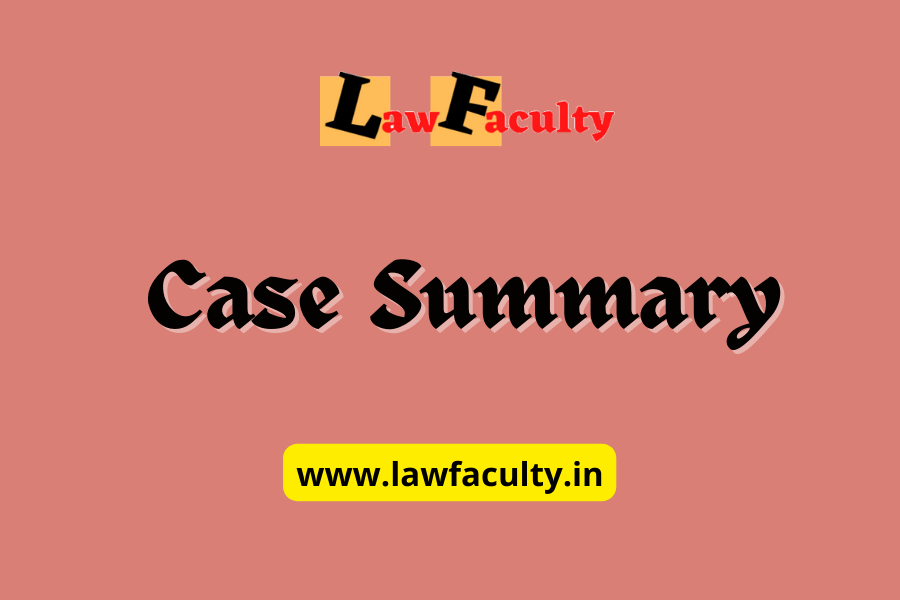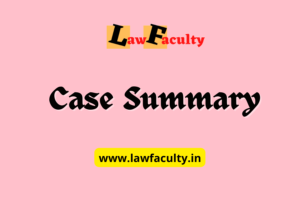LOOP TELECOM AND TRADING LIMITED V. UNION OF INDIA
COURT: The Supreme Court of India
CORAM: Justices Dhananjaya Y Chandrachud, Surya Kant and Vikram Nath
DATE OF JUDGMENT: 3 March 2022
FACTS
In 2007, Loop Telecom had applied for grant of Unified Access Service License (USAL) for twenty-one service areas by paying an entry fee of Rs. 1.1 crores. And an year later, the telecom company entered into UASL agreements with the union government.
On February 2, 2012, the Supreme Court, in the 2G spectrum case, ruled that the policy of the union government for allocation of 2G spectrum on a first come first serve basis was illegal. The judgement resulted in quashing of the UASLs granted by the Union. Twenty one of the company’s licences were among the 122 licences which were quashed by the Supreme Court.
After the 2012 verdict, the telecom company approached Telecom Disputes Settlement and Appellate Tribunal [TDSAT] seeking refund of entry fee Rs.1454.94 crore, but the same was rejected in 2015.
Loop Telecom moved a subsequent refund claim before TDSAT after its promoters were acquitted in a criminal case by a Central Bureau of Investigation [CBI] Special court in 2017.
In 2018, TDSAT dismissed this claim by stating that the claim for restitution under Section 65 would be governed by the principle of in pari delicto potio rest condition defendentis (in equal fault, better is the condition of the possessor.
Aggrieved by this the company filed this petition before the SC.
ISSUE RAISED
Whether the plea of appellant for the refund of entry fee made is maintainable or not?
JUDGEMENT
The Court inter-alia held that the UASLs were in the nature of a contract between the parties as stated in case Union of India v. AUSPI, (2011) and therefore the provisions of the Indian Contract Act, 1872 were applicable
The Apex Court relied on the principles laid down in the judgment of Anmani Appa Rao v. GollapalliRamalingamurthi, wherein a three-judge Bench held that where both the parties before the Court are confederates in the fraud, the Court must lean in favour of the approach which would be less injurious to public interest. Reliance was also placed on Kuju Collieries Ltd. V. Jharkhand Mines Ltd. Wherein it was categorically held that if both the transferor and transferee are in pari delicto (in wrong) the courts do not assist them.
It was further observed that Section 65 had to be limited to those cases were the party claiming restitution itself was not in pari delicto. However, when the party claiming restitution is equally or more responsible for the illegality of a contract, they are considered in pari delicto. If the party claiming restitution was equally or more responsible for the illegality (in comparison to the defendant), there shall be no cause for restitution which would depend on the facts and circumstances of each case.
Applying the said principles and observations, in the present case, the Bench concluded that the appellant was in pari delicto with Department of Telecommunications and the then officials of the Union government. Hence, as a beneficiary and confederate of fraud, the appellant could not be lent the assistance of this Court for obtaining the refund of the Entry Fee. Accordingly, the appeal was dismissed.


![Read more about the article STATE OF KERALA Vs. K. AJITH & ORS. [CRIMINAL APPEAL NO. 697 OF 2021]](https://caselawreporter.com/wp-content/uploads/2022/07/Copy-of-Copy-of-Bailable-and-Non-Bailable-Offences-6-300x200.png)
